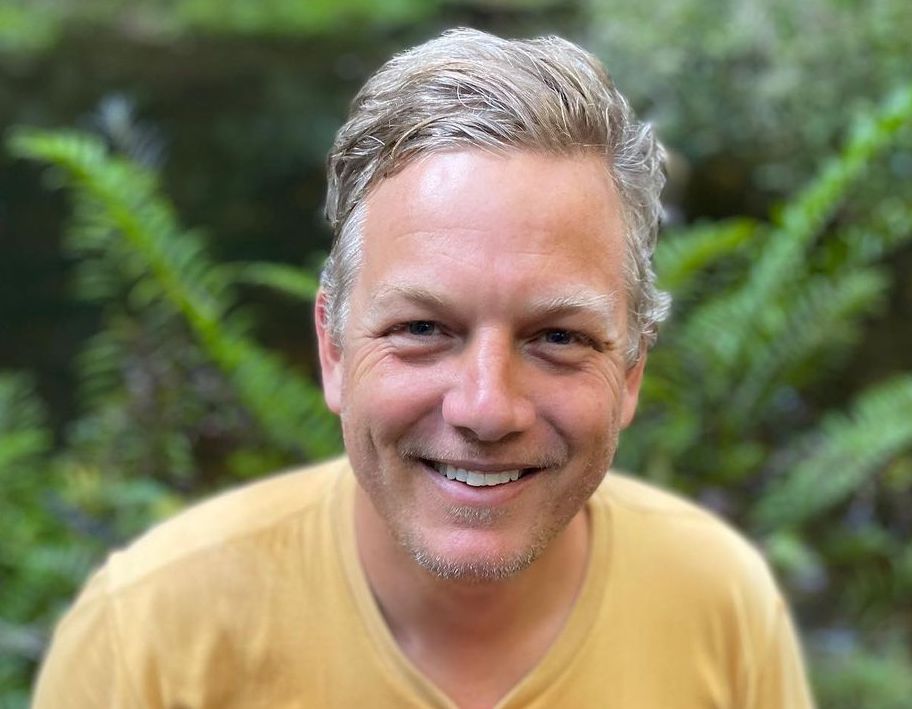
How Social Media is Ruining Our Productivity
Social media is everywhere, and it is endless. Whether we are scrolling with our thumbs on our phones, swiping left to right, or responding to pings on our computers, it’s a constant presence in most of our lives.
There will be nearly 5 billion social media users worldwide in 2023 (an 80% increase in the last five years), and nine out of ten people use social media on their mobile devices. Sustained trends like increased WiFi coverage, more robust networks, and inexpensive smartphones have meant that everyone from tweens to grandparents is getting a phone and using social media to ‘stay connected.’
At its best, social media is a great tool to keep us connected to family and friends and broaden our professional networks.
But at its worst, the world’s number one distraction is undermining our productivity and mental health and hindering us from achieving our goals.
In this article, we’ll unpack just how social media affects productivity and well-being and explore practical ways to limit the distraction of social media so you can focus on your goals.
So put your phone in airplane mode, and let’s dive in!
How Social Media Affects Productivity

Here are some of the ways social media could be holding you back:
It is inherently addictive.
Any activity that is addictive in nature can spell big trouble for productivity, and it all comes down to one crucial brain chemical: dopamine.
Dopamine is the ‘reward chemical’ that our brain produces when we do something our body likes. This can be anything from food and exercise to pulling the lever on a slot machine at a casino.
Dopaminergic pathways in our brain are particularly reinforced in anticipation of positive social stimuli. Receiving a text message or a heart emoji on your phone while trying to work delivers a small but immediate dopamine hit. It’s a neurochemical reward we’ve become used to over the course of our day, and it keeps us coming back for more.
Looking for our next “reward” can lead to procrastination and task avoidance: we are wired to prioritize the sure-fire reward we get from a trip down the social media rabbit hole to the delayed gratification of completing a work task or study assignment.
If you’ve ever picked up your phone for no good reason other than to look at your notifications or social media feed, you are likely unconsciously on the hunt for a dopamine hit.
It can harm your mental health.
When our mental health suffers, our productivity usually follows, and social media use has been proven to harm our mental well-being in various ways.
Sharing and connecting seem harmless enough in principle. However, what starts as enthusiasm when posting about your day can soon turn to disappointment when you don’t get as many likes, views, or reactions as you’d hoped. This can lead to feelings of depression, anxiety, and loneliness, which can take a real toll on your work and academic life.
Another way social media can harm your mental health is by triggering our all too human tendency to compare ourselves. People tend to paint only the most positive picture of themselves on social media–projecting the perfect home, the perfect relationship, and the ideal (often photoshopped) physique to the world. Scrolling through all this perceived “perfection” often leads to comparison with our own reality, and that’s where our self-esteem can take a big hit.
It can stress you out.
The immediacy of social media at our fingertips has also resulted in it replacing our traditional mainstream media (TV, print, and even online portals) as our preferred news source. Thus, a quick trip to your Facebook feed can overload your brain with the world's many crises and leave you feeling anxious when you try to return to your work.
Moreover, social media platforms like Facebook know that extreme content increases engagement. Using algorithms, they can tell which content you are most likely to engage with and which will likely generate a strong emotional response.
For example, if you’ve shown interest in environmental issues, your feed might be flooded with news about the latest climate catastrophes. You might find it tough to return to that report you were working on as you worry about the latest oil spill halfway across the globe.
It increases the likelihood you’ll make mistakes in your work.
The drop in focus when we’re interrupted can also lead to accuracy issues in the work we produce. A direct message alert from Facebook, Instagram, or WhatsApp may only cause an interruption of 2 or 3 seconds, but it can cause us to make double the errors when we return to our primary task.
It makes it harder to focus.
The ability to focus is crucial to accomplishing what we want in a given day, and social media is continually stealing our focus.
A study found that people receive an average of 63.5 mobile notifications per day and that the lion's share of them are from social media apps and email. While they may only shift our concentration for just a few seconds, it can take up to 23 minutes for us to fully regain focus on the task we were working on beforehand. This can add up exponentially over a workday.
All these factors add up to hours of your life that are stolen by social media–time that you can’t get back. So, it might be time to rethink your relationship with social media and consider what you might gain from cutting back your usage.
Benefits of Limiting Social Media

Easing up on your social media use can improve your life in the following ways:
Better sleep
Engaging with social media on our phones before we go to sleep is a common practice. Unfortunately, the blue light from our phones has been scientifically proven to affect our circadian rhythm (sleep patterns). Blue wavelengths in the light spectrum emitted from our phone and computer screens block the production of melatonin, the hormone that makes us fall into a deep, restful sleep. A poor night’s sleep can make us groggy, irritable, and inattentive during the day.
Enhanced productivity
A US survey found that American employees are losing up to two and a half hours each workday to consuming irrelevant digital content for their jobs. So whether it’s for yourself or your employees, being more mindful about the amount of social media you consume can pay off in more productive work hours.
Improved mental health
A 2022 study by the University of Bath (UK) examined the mental health effects of a week-long social media break. The results showed that just one week without social media improved participants' overall level of well-being and reduced their symptoms of depression and anxiety.
More concentration
A result of this study was that concentration levels rose 18% amongst those who stayed off Facebook, as they reported feeling more present in the moment.
Improved self-esteem
The detrimental psychological effects of taking a ‘selfie’ to post on social media have also been well documented. And don’t forget that all those Instagram influencers have professionals behind the camera anyway, so your actual selfie will probably never compare.
Likewise, not being bombarded with social media posts about the new houses, jobs, cars, and exotic vacations of others can do wonders to help you appreciate and be content with what you have.
If you can relate to any of the above benefits, why not consider conducting a personal experiment and see if life improves with a break from social media? There are several ways you can go about it.
How to limit your social media usage

1. Go cold turkey
This is the least realistic option, and it’s not for the faint of heart, as it requires some real white-knuckling to delete your favorite social media accounts or apps. But if you’re willing to take the plunge, you will likely see enormous benefits to your productivity and overall well-being. The internet is overflowing with accounts of people who have done just that and flourished.
2. Turn off your phone when working or studying
While this is a surefire way to keep social media at arms-length, it might not be a realistic option for parents of minor children or anyone who needs to be reachable for serious emergencies.
3. Delete social media icons and bookmarks
Out of sight, out of mind. Once those handy WhatsApp, Instagram, and Facebook icons are gone, you won’t be able to open them absent-mindedly, and this can make you more mindful of how much you use them. In the same vein, removing the bookmarks from your web history can slow your impulse trips to your favorite websites, as you are forced to re-login before using them.
4. Use website and app blockers
Using website and app blockers can immediately shut down compulsive visits to your favorite social media apps and websites. Over time, the memory of the dopamine hits from visiting your favorite social media will fade and lose its hold over you. This makes it much easier to erase old social media habits and create new ones.
If you go this route, there are several straightforward website blocker apps on the market. But consider trying a comprehensive solution like the kōno app-based productivity system, which can block both websites and apps on your computer.
5. Try productivity techniques
Single-Tasking
Single-Tasking is one of the most potent productivity tools as it helps you practice the habit of working on one thing at a time. A lot of the time we lose to social media happens as we attempt to multitask and jump chaotically between our tasks. Practicing single-tasking is a mental commitment to staying focused on one thing at a time, making it less likely you’ll absentmindedly wander over to your Twitter feed.
Pomodoro Technique
This technique involves using a Pomodoro timer to work in cycles of 25 minutes on a single task, followed by a 5-minute break. Rinse and repeat. It’s also a great tool to support reducing social media, as it creates an easy-to-commit-to time window where you stay completely focused on your task and don’t yield to interruptions.
Timeboxing
Timeboxing breaks your day up into set “boxes” of time and requires you to get very specific in choosing a single activity to fill each box. Make an intentional decision to contain your social media use to one or two short blocks in your day. It’s a great way to practice moderation with social media, without having to eliminate it altogether.
6. Replace social media with something more fulfilling
Many of us have simply fallen into the habit of using social media as our go-to source of entertainment and stimulation, and it will take some conscious effort to replace it. Instead of scrolling through TikTok on your work breaks, start cultivating other habits that make you happy, like picking up a favorite book, going for a stroll with a colleague, or checking out that new shop that just opened around the corner.
Moderation, Not Elimination
Social media is ubiquitous and it’s certainly not going away. That much we know. So the onus is on us, as consumers, to become responsible gatekeepers of how we use it.
Social media is still an incredibly useful means to stay connected with our loved ones and our professional networks. So in the end, the key is to avoid using it to the extent that we lose sight of our personal goals and well-being.
Implementing some of the suggestions in this article can improve focus, reduce stress, and free up precious time that you can invest in your goals and dreams–and that can deliver real happiness.





